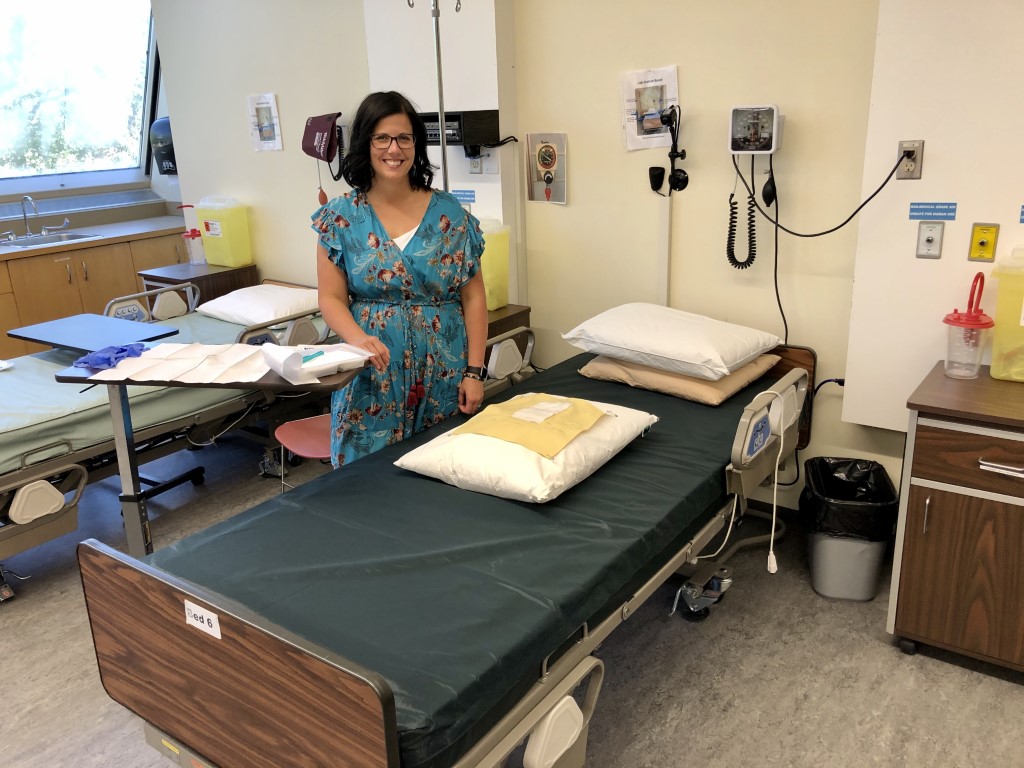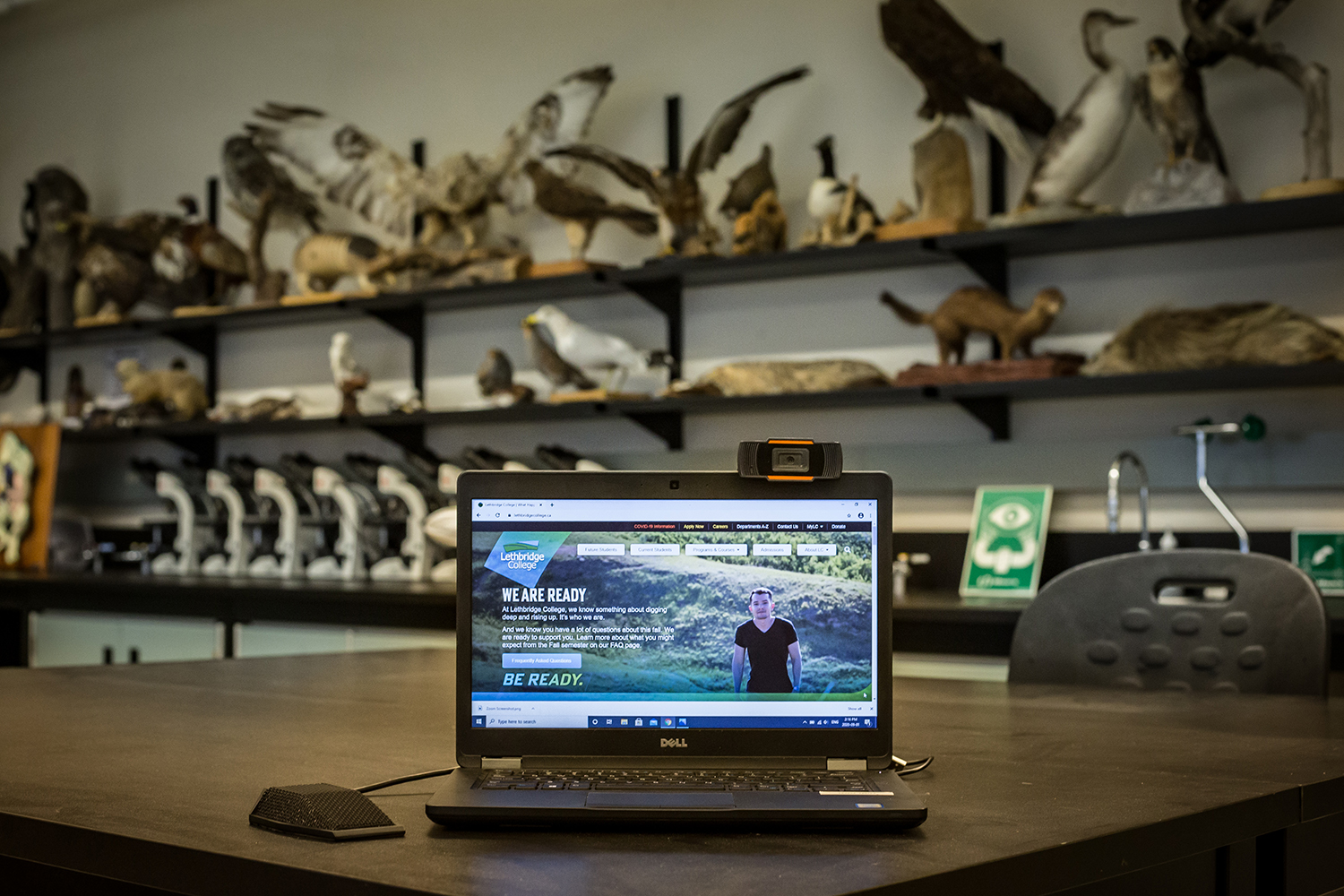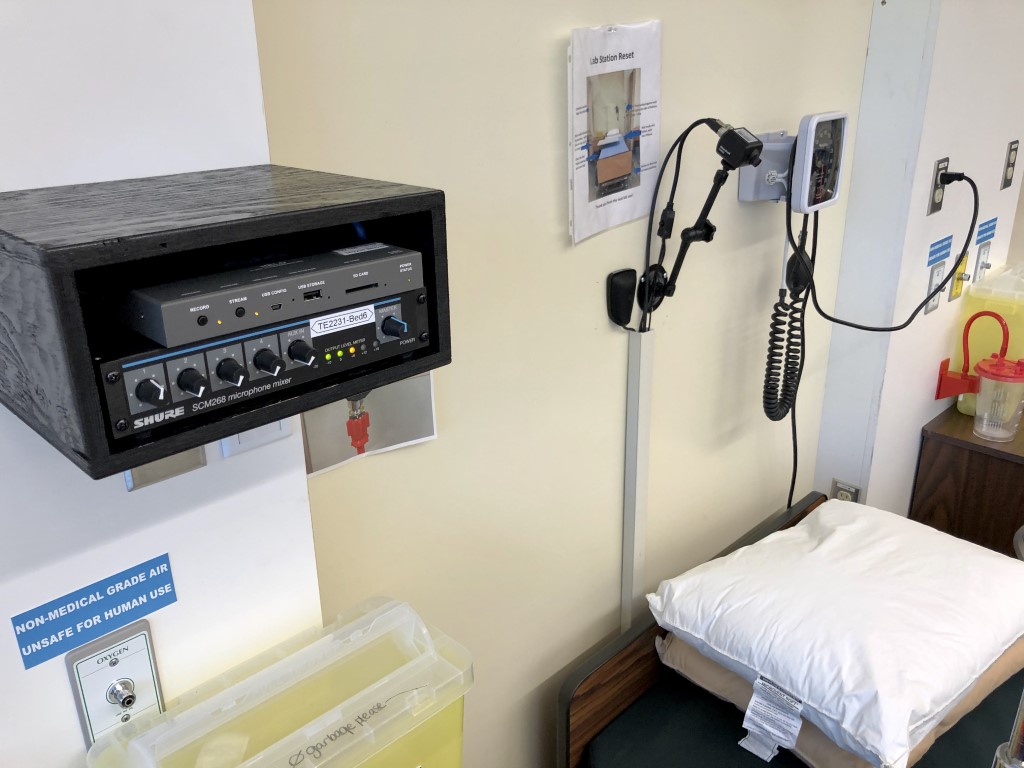
Lethbridge College faculty are getting creative and innovative to ensure they deliver engaging, relevant and high-quality classes to students in the Fall 2020 semester. With classes being delivered both online and in-person in the college’s flexible learning environment, faculty members have worked to find new ways to connect with their students.
“Our faculty are one of our institution’s greatest strengths,” says Dr. Samantha Lenci, Lethbridge College Provost and Vice President – Academic. “They understand how our students learn best, and they have taken great steps to ensure they are teaching in ways that engage and inform our students. I have been impressed with the ways they have embraced technology, created alternate delivery methods and thought outside the box to deliver curriculum in completely new ways this fall.”
A lesson learned from the winter semester, when classes abruptly shifted online in response to the COVID-19 pandemic, is that online classes need to be engaging and employ different techniques to allow students to get the most out of the instruction. The college’s Centre for Teaching, Learning and Innovation (CTLI) offered instructors the opportunity to learn the intricacies of the Zoom platform, including using a variety of video inputs and breakout discussion rooms to add variety to class deliveries.
In addition, some instructors have used video production to bring the most out of their online classes. Some trades programs have recorded full labs, while instructors in the Environmental Sciences program used the summer to go to traditional field trip locations to take video of wildlife and plants, recreating the field trip experience without having to risk traveling with students during the pandemic.

“We are using the tools we have, to create the best possible experience for students,” says Dr. Terry Kowalchuk, Dean of the Centre for Technology, Environment and Design. “Collecting video of our field sites in the summer season allows students the opportunity to see plants in their best condition. This is an enhancement of what we can offer in fall and spring field seasons.”
For students coming to campus for in-person labs or experiential opportunities, innovations have allowed instructors to balance health and safety considerations with quality learning. Health and Wellness, Agriculture and Environmental Sciences labs are using video technology to link multiple labs to receive instruction at the same time. This means an instructor can deliver information in one lab while students follow along in smaller cohorts in other labs. The instructor can then move between the linked labs to work directly with students.
Another innovation is in the SPHERE (Simulated Patient Health Environment for Research and Education) labs within the Centre for Health and Wellness, where video cameras and recording devices have been installed above teaching beds. Students are now able to book a time in the room and record themselves demonstrating the required skill. Once they have completed the demonstration, it is automatically uploaded to a cloud drive where instructors can download the recording at a time convenient to them.

“We purchased these cameras to help support and facilitate student learning within our lab settings,” says Sheri Wright, SPHERE coordinator. “It will enhance the students’ opportunity to achieve learning outcomes by allowing students to choose a testing time that is most conducive for their success, while also reducing anxiety around practical testing. It will also help increase capacity within our labs to support students during their practical testing.”
Additional innovations include three-week on-campus residencies in the Digital Communications and Media program, which balances the need for online theoretical learning and in-person hands-on training; the first full-time remote instructor in Environmental Sciences as an instructor based in Rossland, B.C. will be able to deliver her courses remotely, expanding the college’s instructional talent base beyond those located in southern Alberta; and the ability to bring in guest speakers and experts from around the globe thanks to the wide adoption of video technology.
New Student Orientation and program orientations take place on Tuesday, Sept. 8, although students are encouraged to check lethbridgecollege.ca/nso to learn what they can do to get ready ahead of time. Some trades programs are already underway at the college, while most classes begin Sept. 9. Check out the lethbridgecollege.ca for more information.